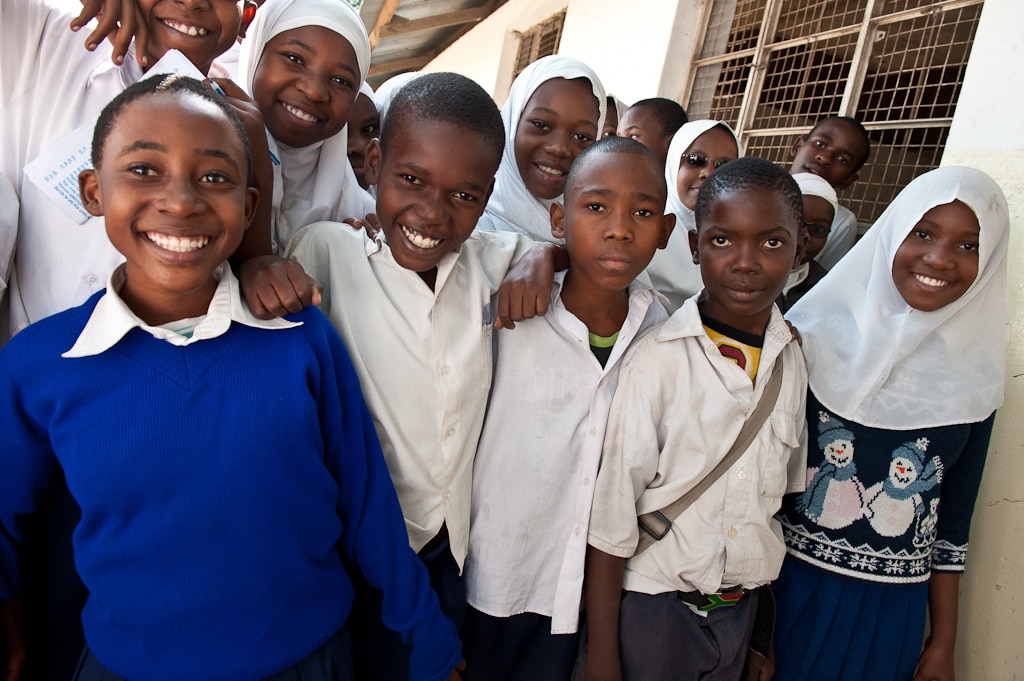Africa is young, vibrant and full of potential for rapid economic growth. All it requires is increased and sustainable investment in human capital.
Africa’s young people are energetic and ambitious. As the most connected generation of Africans in history, they hold the key to unleashing greater productivity and propelling the economic trajectory of the continent – if they are healthy, educated, and skilled. The African Human Capital Heads of State Summit that took place last week brings this timely opportunity to the forefront. Here’s why we must act now.
By 2075, one out of three people of working age will be African. Africa is the only region in the world where the workforce will continue to grow in the coming decades – with the working-age population expected to grow by 450 million by 2035. With quality education and relevant skills, this growth in human potential gives Africa an enormous opportunity to supercharge economic growth and achieve greater prosperity for billions of people in the continent.
To realize this accelerated and sustained growth, as seen in prior decades in regions such as East Asia, countries must invest in their human capital – the knowledge, skills, and health that people accumulate over the course of their lives. Today, African countries must make concerted and sustained efforts in an integrated and collaborative way to overcome steep challenges – exacerbated by the impact of conflict, Covid-19, and climate change.
The continent continues to battle a learning crisis. Sub-Saharan Africa has over 100 million out-of-school children, the highest rate in the world. Many of those in school are falling behind on key learning indicators: reading, writing, and basic math. The percentage of 10-year-olds that are unable to read and understand a simple text is projected to be approaching 89% following the Covid pandemic.
Loading...
As leaders, we have a window of opportunity to invest in Africa’s young people through better health, nutrition, and education – and working closely with the continent’s growing private sector to connect them with more and better jobs – so youth can become an engine for inclusive and sustained economic growth. Rallying more resources and making timely investments to strengthen education and health systems will help improve services and increase opportunities and productivity. This is key for breaking cycles of poverty, achieving a demographic dividend, and unlocking the region’s enormous economic potential.
There are many promising examples of countries in the region making efforts that are seeing promising results. In Tanzania, the BOOST Primary Education Learning Program is improving the quality of education and teaching for 12 million students, with a focus on girls – as well as the marginalized and vulnerable. Nigeria’s Edo State has enhanced its digital education system, creating 7,000 virtual classrooms and training more than 11,000 teachers. Africa Centers of Excellence Project (ACEs) is delivering quality higher education training that fulfills skills requirements in demand by employers on the continent and abroad. These efforts can and must be scaled up and replicated, tailoring them to the unique needs of the different contexts.
Accelerating progress requires sound policies and coordination, supported by robust funding. To accelerate productivity and incomes, governments should quickly implement effective strategies for learning recovery – with greater investments in education, skills, and job creation. The funding must also be used effectively and efficiently – measured by stronger services and a healthier, and more skilled population that can create and take on jobs of today and the future.
However, much more remains to be done. Addressing these challenges and accelerating human capital progress will require strong country and regional commitment, combined with close collaboration with development partners and catalyzing the private sector’s potential.
The Africa Human Capital Summit, which took place from July 25 to 26 in Dar es Salaam, Tanzania, convened leaders from 43 African countries to make commitments on this pressing priority. As signatories of the Dar es Salaam Declaration – born out of the summit – leaders from across the continent agreed to step up efforts to strengthen the quantity, efficiency, and impact of investments in their people. Sub-Saharan Africa scores the lowest of all the world’s regions on the World Bank’s Human Capital Index (HCI), yet faces a youth bulge that could be leveraged to supercharge African economies if the right policies and investments are implemented today.
The Dar es Salaam Declaration constitutes tangible financial and policy commitments made by African leaders to prioritize investing in people with a focus on reaping a demographic dividend.
Accelerating action together in building Africa’s human capital is an urgent priority. The continent’s future depends on it.
Let’s invest today in the next generation to transform Africa towards greater prosperity on a livable planet.
By President Samia Suluhu Hassan, United Republic of Tanzania; Victoria Kwakwa, World Bank Vice President for Eastern and Southern Africa and Mamta Murthi, World Bank Vice President for Human Development
Loading...
